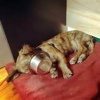The Unintended Consequences of Late Night Eating

So, you eat a bowl of cereal during the Late Show. No harm in that, right? The answer may depend on how much of a habit late night eating is for you.
Research says that eating snacks and meals late in the evening can lead to acid reflux, weight gain and even impaired memory and learning ability.
In 2014, the New York Times reported that as many as 40% of Americans have acid reflux. In addition to heartburn and indigestion, reflux symptoms may include postnasal drip, hoarseness, difficulty swallowing, chronic throat clearing, coughing and asthma.
The high incidence of acid reflux is significant because it can lead to esophageal cancer, which has increased by about 500 percent since the 1970s. A study conducted in Denmark concluded that there were no cancer protection effects from using common anti-reflux medications and that regular long-term use was actually associated with an increased risk of developing esophageal cancer.
Why is reflux and esophageal cancer such a problem? Our poor diet is largely to blame – sugar, soft drinks, fat and processed foods. Another factor is not simply what we eat, but when. We can now get food 24 hours a day from drive through windows, convenience stores, and food delivery services. Evening meal time has been trending later and later. The after-work meal — already later because of longer work hours — is often postponed further by activities such as shopping and exercise. In short, reflux is a lifestyle problem.
When you look at Europeans, who typically eat later, they have fewer cases of reflux than Americans. Why? Researchers believe that has to do with portion control. Another factor has to do with our daily eating patterns. Eating late is typically accompanied by overeating, skipping breakfast and eating too little during the day. Reflux can be aggravated by eating and then going to bed. When you are lay down, acid from your stomach can spill out. A full stomach makes that spilling far more likely.
To reduce reflux disease, eat your last meal at least three hours before bed. Stay away from foods that aggravate reflux, like mints, chocolate, soft drinks and alcohol. Eating dinner early may be a difficult lifestyle change, requiring eating well-planned breakfasts, lunches and snacks, making healthier choices and monitoring portion size, but the inconvenience of the lifestyle change could pay off big by significantly decreasing your risk of esophageal cancer.

















